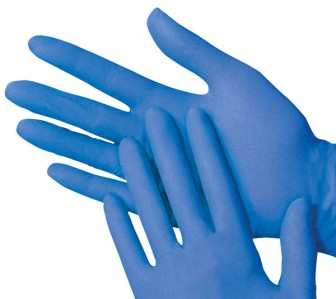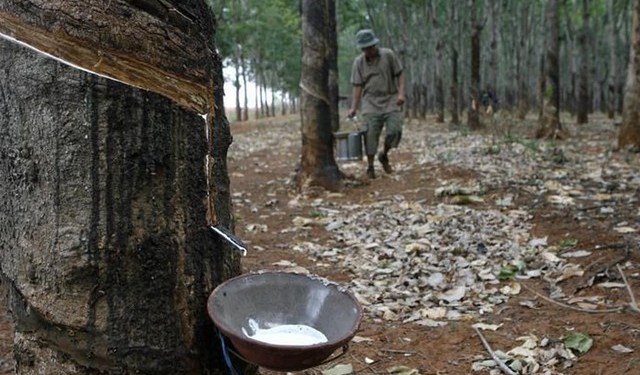 KUALA LUMPUR: Rubber glove manufacturers said they might move some of their production overseas, such as to Myanmar, as the government was not willing to extend the reinvestment allowance to the industry which expires in the middle of next year after a 15-year run.
KUALA LUMPUR: Rubber glove manufacturers said they might move some of their production overseas, such as to Myanmar, as the government was not willing to extend the reinvestment allowance to the industry which expires in the middle of next year after a 15-year run.
If the reinvestment allowance is not extended, the effective tax rates for the manufacturers will rise, hence trimming their profits substantially.
With an estimated RM1.6 billion to be spent across the rubber glove industry to automate existing production lines to counter rising labour costs, glovemakers have been lobbying for an extension of the reinvestment allowance, which has been rejected by the Ministry of International Trade and Industry.
“The industry is at a crossroads. Labour costs are going to increase next year so the industry is preparing to invest a lot in automation. Unfortunately, the government has indicated that it is not willing to extend the reinvestment allowance that will help us greatly. All we are asking for is another 5- to 10-year extension,” said Dennis Low, vice-president of the Malaysian Rubber Glove Manufacturers Association (Margma).
A company that enjoys reinvestment allowance will be given a 60% claim on the qualifying capital expenditure, in addition to the normal capital allowance claim, explained Yee Wing Peng, country leader for Deloitte Malaysia.
What this means is that with the reinvestment allowance, rubber glovemakers have been enjoying an effective tax rate of about 14% to 18% instead of the normal tax rate, which would have been much higher, said Low.
Without an extension, the rubber glove companies that will be the hardest hit are those currently enjoying the lower tax rates, said analysts.
“Depending on how aggressively companies have been recognising the deductions, their effective tax rate may slowly taper upwards or bounce back up to the full 28% (which is the statutory corporate tax rate),” noted an industry player.
The government had extended the reinvestment allowance for the industry before, but not this time. Last month, Deputy International Trade and Industry Minister Datuk Jacob Dungau Sagan said the 15-year reinvestment allowance given to assist the rubber glove industry should be deemed sufficient.
Yee of Deloitte said the Malaysian government had been relatively generous with the reinvestment allowance. In Thailand, glovemakers were given income tax exemption of only eight years while Vietnam this year removed the tax incentives given to export processing enterprises.
After all, the rubber glove industry has been growing healthily despite a softer global economy. In fact, Margma projects rubber glove exports to reach RM11.5 billion for 2012, up 17.34% from 2011’s RM9.8 billion.
“I don’t mean to brag, but no other country has a rubber glove industry that can be considered a close second to ours,” said Low.
However, he added that the industry needed the reinvestment allowance to be extended because it would be investing heavily in “greenfield” automation technology.
“If we invest in these technologies, it can reduce our dependence on foreign labour. A fully automated plant could shed as much as 60% of its labour requirements,” said Low.
Based on the projected capital expenditure, Yee estimated that if all the RM1.6 billion qualified as reinvestment allowance, the industry as a whole could save up to RM240 million.
If the reinvestment allowance is not extended, rubber glovemakers — which have long supported the domestic economy — could move their operations to more investment-friendly countries such as Myanmar, which can give companies a 15-year tax holiday, said Low.
“The [Malaysian] government is so keen on attracting foreign investment but it is neglecting domestic investment. Don’t forget that all these years, we have been investing locally. All our manufacturing is done locally and has supported the local rubber planters,” he added.
Having said that, Low noted that most of the investments made by glovemakers would stay in Malaysia as more than 80% of the new machinery and technology for glovemakers are developed and produced by Malaysian engineering firms.
Without a reinvestment allowance, the manufacturers’ expansion of new plants will also be affected, said analysts. A plant with 12 lines and a capacity of one billion pieces a year used to cost about RM30 million. Today, a fully automated plant will cost almost RM50 million.
Smaller players that lack the financial muscle to automate and expand could be forced to consolidate to remain competitive, while the big boys will simply have to take a hit to their bottom line, said an analyst.
But despite the loss of the reinvestment allowance, Yee said all was not lost as there were still other tax incentives out there to help rubber glove manufacturers.
Companies that manufacture safety or special function gloves, which is a pioneer activity promoted by the government, can get income tax exemptions, he said. Export allowances with 100% tax exemption have been increased, while research and development expenditure incurred to enhance technology is subject to double deduction.
Source: theedgemalaysia.com





![[Geojit Comtrade] Daily report on Natural Rubber: November 12, 2012](https://img.globalrubbermarkets.com/2024/08/geojit-comtrade-daily-report-on-natural-rubber-november-12-2012.jpg?resize=75%2C75&ssl=1)






















